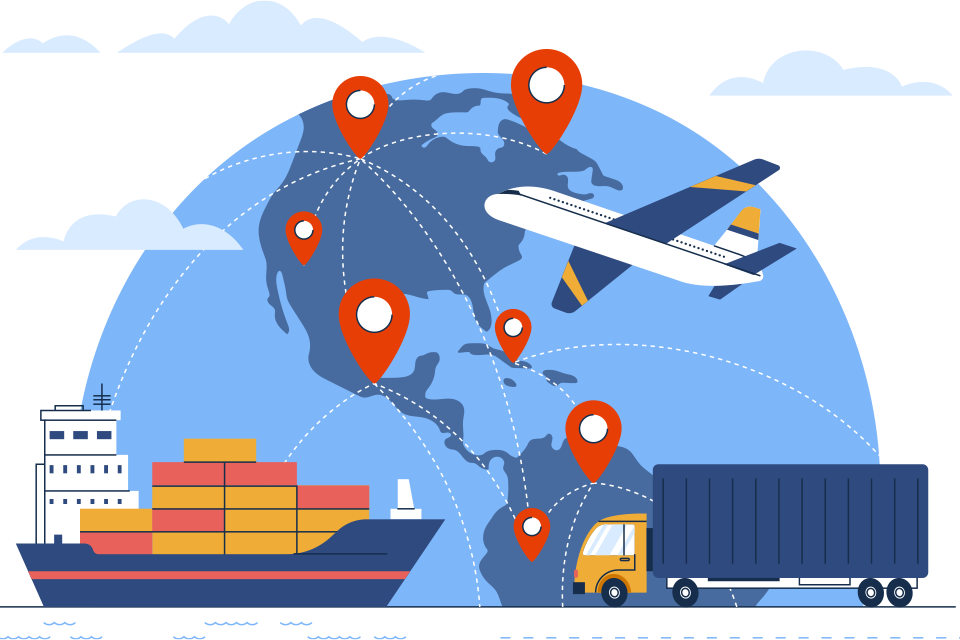Logistics & Supply Chain
We provide end-to-end logistics and supply chain solutions designed to help businesses move goods efficiently, reduce costs, and improve customer satisfaction. Our services cover transportation management, warehousing, inventory control, order processing, invoicing, and documentation with a strong focus on accuracy and timeliness.
We partner with retailers, wholesalers, distributors, and freight companies to streamline operations and ensure smooth movement of products across local and international markets. By combining technology, process expertise, and skilled teams, we deliver flexible solutions that adapt to client needs.
Our goal is simple: to optimize supply chains, minimize risks, and create value by ensuring goods reach the right place, at the right time, and at the right cost.
With reliable processes and customer-focused support, we help businesses scale with confidence in today’s competitive marketplace.

Key Aspects of Freight Logistics:
Transportation Management:
This includes selecting the best mode of transportation (truck, train, ship, or airplane) based on cost, speed, and nature of goods. Transportation management also involves route optimization to reduce transit time and expenses, as well as coordinating with carriers to ensure timely pickups and deliveries.
Freight Forwarding:
Freight forwarders are intermediaries who coordinate and manage the logistics of moving goods on behalf of shippers. They handle essential paperwork, arrange shipping routes, consolidate shipments, and liaise with customs officials, making it easier for companies to move goods across borders efficiently.
Warehousing and Storage:
Efficient warehousing ensures that goods are stored securely and are ready for distribution. Warehousing services are essential for managing inventory, reducing costs, and supporting just-in-time delivery. Strategic locations of warehouses can significantly cut down on delivery time and transportation expenses.
Customs and Compliance:
For international shipments, customs clearance is an essential part of freight logistics. Compliance with the regulations of various countries, completing documentation accurately, and ensuring timely customs payments are necessary to avoid delays and fines.
Freight Tracking and Visibility:
Real-time tracking systems provide end-to-end visibility of the freight journey. By monitoring the location, condition, and expected delivery times, companies can better manage their supply chains and improve customer satisfaction. Tracking technology also enables proactive response to any delays or issues that may arise.
Supply Chain Optimization:
Freight logistics is closely tied to the broader supply chain strategy. By analyzing data and optimizing logistics processes, companies can improve cost-efficiency, reduce lead times, and enhance service quality. Effective freight logistics integrates seamlessly into the overall supply chain, ensuring goods flow smoothly and predictably.
Freight Rates and Cost Management:
Negotiating competitive freight rates and managing transportation costs are crucial for maintaining profitability. Freight logistics providers work to optimize shipping expenses by leveraging bulk rates, consolidating shipments, and carefully selecting the most cost-effective routes and carriers.
Risk Management and Insurance:
Freight logistics includes planning for potential risks such as theft, damage, and delays. Insurance coverage, risk assessment, and contingency planning are essential to safeguard goods and mitigate financial losses during transit.